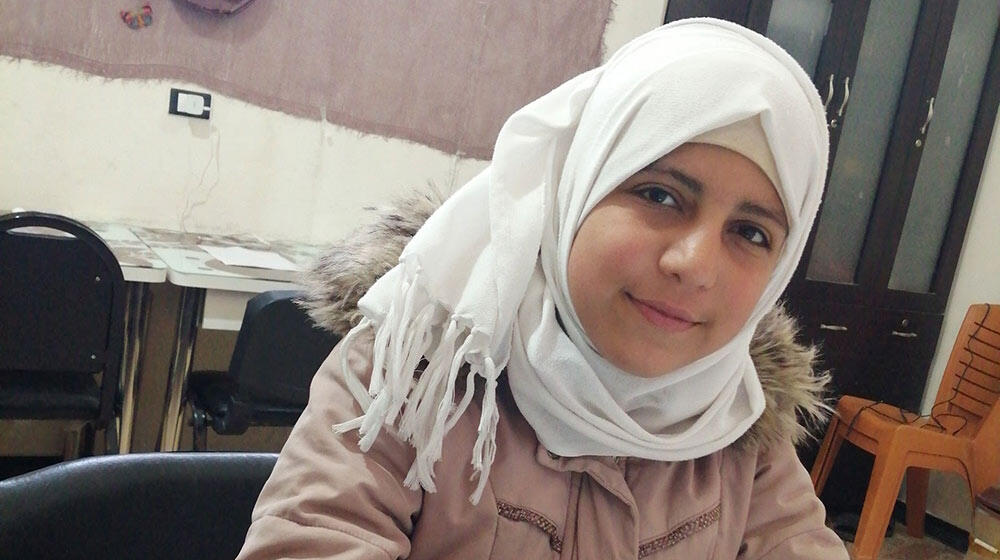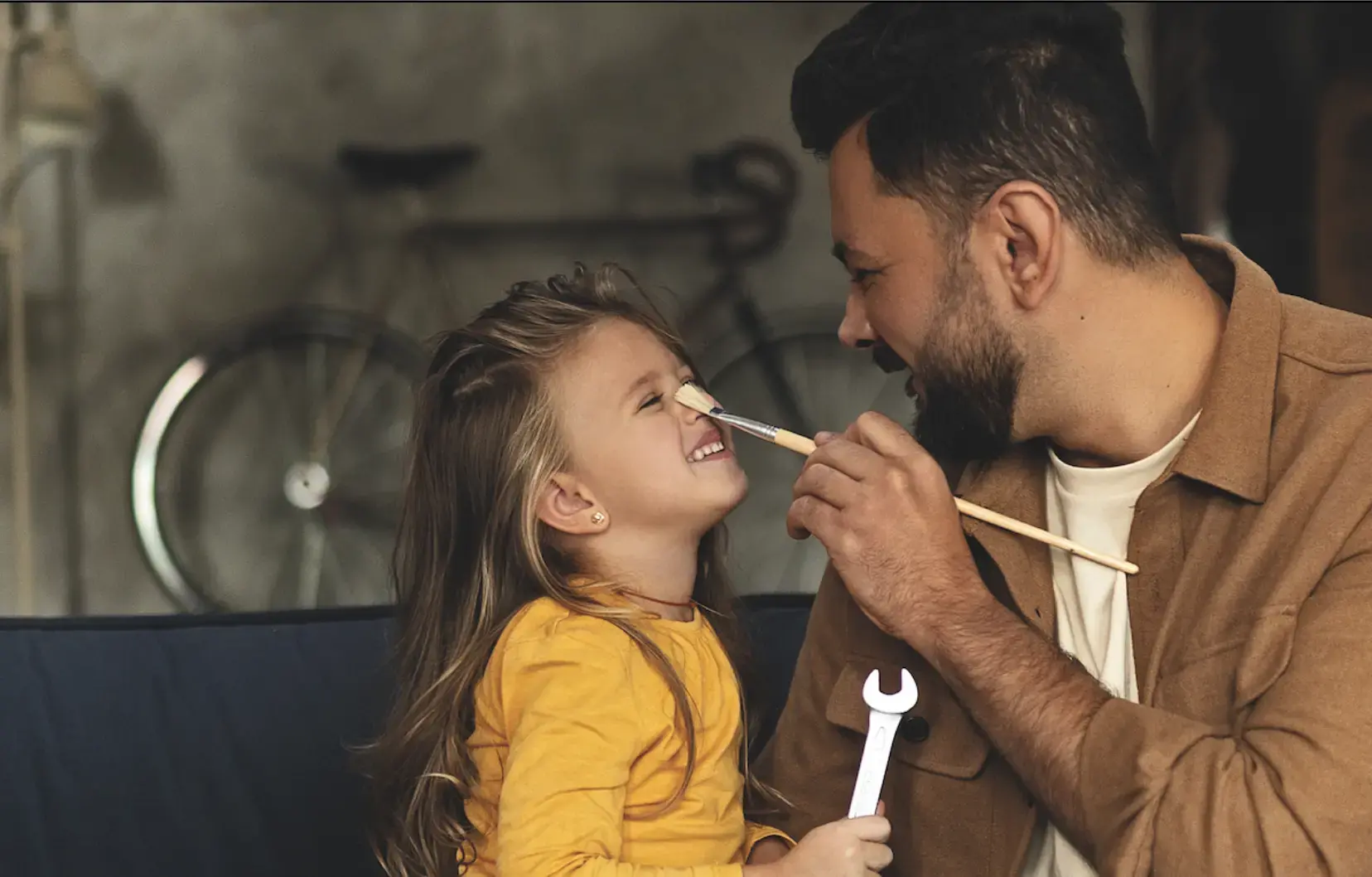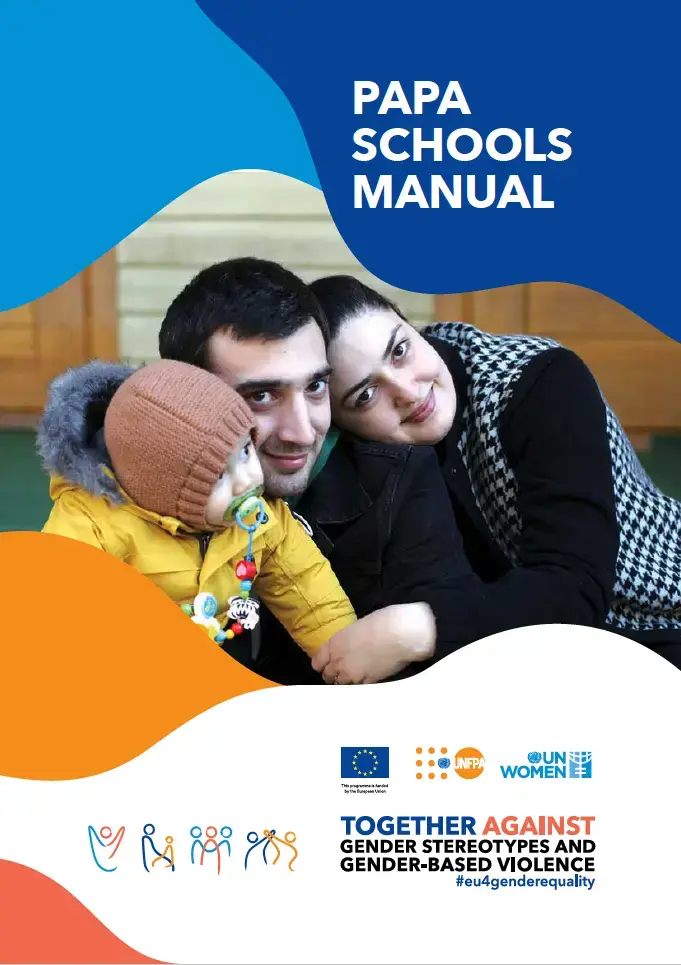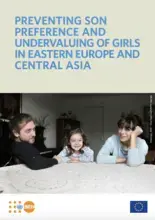AL BAB, Northwest Syria – Bana, 12, was able to escape her hometown, the city of Aleppo, before the Syrian conflict engulfed her neighbourhood. It was the first of two times she and her family would have to flee violence before settling down here, in Al Bab, northwest Syria. And then the pandemic struck.
“Like all girls in Syria, I live a difficult childhood,” she told facilitators at the women’s and girls’ safe space where she receives support and services.
She is a dedicated student, but since the outbreak of COVID-19, her school has often been closed. “When I can attend school, I behave politely and work hard,” she described.
Despite all the difficulties she has faced, Bana has held tight to her ambitions: “I want to be a doctor and help sick people.”
And, in fact, a future in science is a real possibility for her. “I started to attend a robot building course,” she said. “The sessions were amazing.”
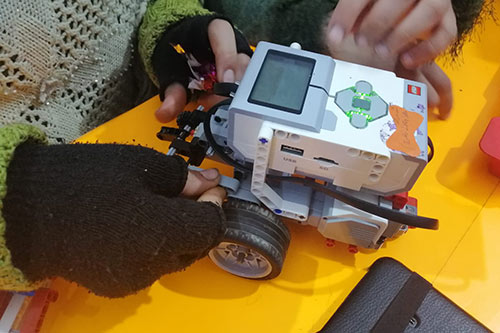
Building a better, more resilient future
Nearly a decade of conflict has left the humanitarian situation in northwest Syria highly volatile.
Of the 4.2 million people living in the area, more than half are living in displacement, and 3.5 million require humanitarian assistance. A staggering 1.6 million people are living in internal displacement camps or settlements; 80 per cent are women and children.
The pandemic has only worsened conditions, deepening poverty, burdening health services and limiting aid delivery.
And the vulnerabilities of girls have greatly escalated: “Girls in northwest Syria continue to bear the brunt of the crisis in Syria, and are particularly vulnerable to gender-based violence,” said Reem Khamis, who coordinates UNFPA’s response to gender-based violence in northwest Syria through the cross-border office in Turkey.
“These forms of violence typically follow a girl throughout her life cycle, beginning in pre- or early adolescence with harassment, restriction on movement, and family violence, and potentially worsening to include child marriage, sexual exploitation, sexual violence, early pregnancy and domestic violence.”
UNFPA is working with partners to help girls demand better.
A future of their own design
Bana, for instance, learned from a friend about a local women’s and girls’ safe space, supported by UNFPA and operated by local partner Ihsan Relief and Development.
The safe space provides a range of services, including counselling and specialized support for survivors of gender-based violence, referrals to sexual and reproductive health care, as well as recreational activities to support stress relief and skill building. (The space also provides COVID-19 prevention information and adheres to strict infection control protocols.)
Unlike many vocational programmes for women and girls – which tend to focus on traditionally feminine jobs such as cooking, sewing or hairdressing – the Ihsan-run safe space also offers robotics classes.
These captured Bana’s interest and sparked a new passion.
“My new friend and I were so impressed and excited when we were able to make the robot walk!”
Some 659 girls, aged 10 to 16, have so far participated in the robotics courses offered at several of the 18 UNFPA-supported safe spaces in northwest Syria. Not only do the classes strengthen the girls’ mechanical abilities, they also promote problem-solving skills, creativity, critical thinking, self-confidence and teamwork.
“It helps us to use our intellectual skills,” Bana said.
Globally, women comprise only 33 per cent of science and technology researchers, and Syria is no exception. But this robotics class – which receives support from Canada, Norway and the United Kingdom – is giving vulnerable girls a chance to shatter that glass ceiling.
Still, the girls of northwest Syria need more than just classes and skills. They must also be empowered to meaningfully participate in Syria’s path to peace.
“I like to learn to make my future bright,” Bana said. “I hope that this war will end soon so I can return safely with my family to our home in Aleppo. I am sure this is the dream of every girl here.”

